-
•
•
2 responses
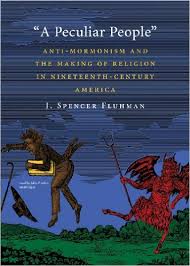
So I finally got around to reading J. Spencer Fluhman’s book “A Peculiar People”: Anti-Mormonism and the Making of Religion in Nineteenth-Century America. I was expecting another account of “beat up the Mormons” episodes in the 19th century. Instead, it was an entertaining and informative review of how informally established Protestantism worked in the 19th century (hence my subtitle to the post). The focus is not so much on Mormonism as on how everyone else, in particular the Protestant majority, reacted to Mormons and their religion in 19th-century America. Read More
-
•
•
One response
We’ve decided to revive our long dormant photo series “A Mormon Image,” which features photos and other images that carry meaning for us because they resonate with our “Mormonness.” As part of this, we’d like to issue a renewed call for photographs to be considered for inclusion in the series. What qualifies as a Mormon image? It should be a photograph or other image which relates to your own Mormon experience. It can be an image explicitly tied to religious ritual, such as a picture from before a baptism. It can be a family photo outside the temple, or a picture… Read More
-
•
•
34 responses
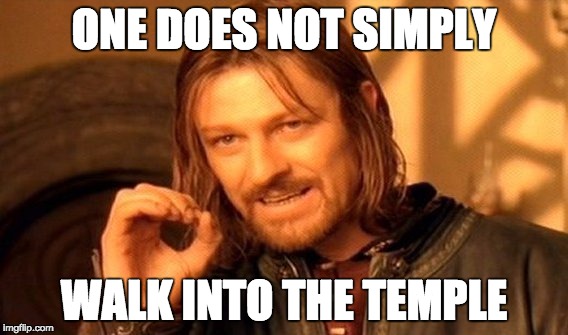
During the three years I was a transportation planning student living in Los Angeles (I completed the final two years of my degree remotely), I had fairly consistent access to a car, but I generally only used it as a transportation mode of last resort since I preferred to travel by walking or transit, and I lived in very walkable, transit-rich neighborhoods (with terrible traffic and limited parking). I lived in three different apartments during that time. The first was within a marginally reasonable walking distance to the temple; the second was on a transit line that served the temple;… Read More
-
•
•
16 responses

The Sunday School curriculum is currently covering the Kirtland period of LDS history, including a full lesson on the Kirtland Temple. While we often treat that temple as part of 19th-century history, it is still around, it is still used for religious services, and it is available for public tours for visitors of any religious faith. I asked Tom Kimball, who lives in Kirtland, to respond to some questions about the Kirtland Temple. Tom is a semi-retired Mormon bookseller of twenty years, a former board member of the Mormon History Association, and presently a staff service volunteer at the Kirtland… Read More
-
•
•
14 responses
I’m Mormon and my husband is not. He has his own religion that constitutes an important part of his identity, vaguely informs his religious beliefs, and minimally informs his religious practice. I would not describe him as religious at all. He would describe me as extremely religious. Sometimes people at church ask me if my husband is “interested in the church.” My answer to that is, well, yes, he’s interested in the same sense that I’m interested in hockey. My husband is a huge hockey fan. He puts a lot of time and energy into watching hockey, listening to hockey… Read More
-
•
•
7 responses
Times and Seasons is pleased to welcome Carole Turley Voulgaris as our latest guest blogger. Carole recently completed her PhD in transportation planning at UCLA and will be joining the transportation engineering faculty at Cal Poly San Luis Obispo this winter following her upcoming maternity leave. For the time being, she lives in the Seattle area with her husband, her cat, and (starting any day now) her baby daughter. Carole served a full-time mission in Germany from 2003 to 2004, and (in addition to her newly acquired PhD), she holds a master’s degree in transportation engineering from BYU and an MBA… Read More
-
•
•
53 responses

We’ve talked a lot about recent LDS growth numbers here including my post on the drop in missionary numbers and Wilfried’s post on the controversial consolidation of units in Europe. Since then the Salt Lake Tribune has weighed in as well.[1] My argument about church growth is that while there are things we could do to improve numbers, we shouldn’t expect a return to the numbers we had in the 1980’s or early 90’s. There are many reasons for that but the basic one is a huge cultural shift in how religion is perceived. Given my relative ignorance of Europe,… Read More
-
•
•
5 responses
I was so touched to see this bit of humanity, this respect and consideration for the stranger. It is one reason I love living in a city: where we are all so close together, we have more opportunity to exercise and witness kindness. Read More
-
•
•
16 responses
Why does the act of charity, in this case, the transaction initiated by a beggar or panhandler, feel so uncomfortable to me? Mental recriminations if I give, guilt if I don’t. Perhaps it is because I don’t know the protocol, the expectations, and so I’m worried about an inadvertent transgression. But it isn’t that hard to act, to find a way to overcome my anxiety and hesitation to do something small. Read More
-
•
•
61 responses
Ten years ago, I posted one of my very first pieces at T&S, “Missing Essentials,” noting the decline of familiarity with LDS history by the average member of the Church and suggesting this was due, in part, to the lack of a replacement volume for Essentials in Church History. In the intervening ten years, the problem has deepened. What was once simple historical ignorance has become, for some Latter-day Saints, a faith crisis, as they encounter online accounts of troubling LDS historical events. Local leaders are generally no more conversant in the details of LDS history than the membership and… Read More
-
•
•
34 responses
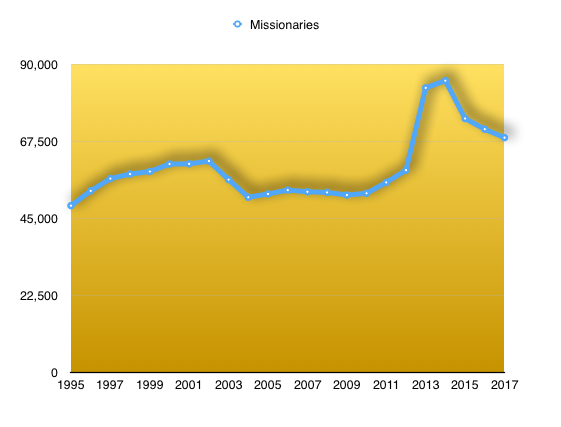
There’s been a bit of controversy in social media over the recent missionary numbers that have leaked. Deseret News has up a story about missionaries that mentions there being 68,500 missionaries out. The new numbers shocked some people but actually are much more in keeping with what we should have expected. It’s just that some expected higher numbers based upon the surge numbers from around 2013. Read More
-
•
•
71 responses

I’ve long been a critic of Mormon artwork. The main problem is that artists tend to portray a superficial connection to the events they are portraying. That’s perhaps somewhat understandable except for the problem that people have a habit of remembering the art rather than the details of what the art was about. We saw that a few years ago with the renewed interest in the seer stones and the method of translating the Book of Mormon. People remember paintings that had Joseph with gold plates, indicating he read them. People didn’t remember all the lessons that he translated them… Read More
-
•
•
45 responses
“Doctrine” is one of those funny words where it seems inevitably to shift in meaning even within a single discussion. I’ll confess whenever I hear it spoken of I often put myself on guard. Not because I don’t have a fair bit of confidence in doctrine but because I suspect the discussion will inevitably equivocate between idealized doctrine as what we’ll one day believe and what is normatively taught at any particular time. Throw in the disagreements about what constitutes doctrine in either category and things get confusing quickly. Read More
-
•
•
86 responses
John Gustav-Wrathall asks, “What can LGBT Mormons hope for?” As an answer, John offers his own experience as a guide, and there is much about it that is commendable. Optimism, faith, relying on God, and a commitment to the Church are all far superior to their alternatives, and John’s generosity and positive approach is a welcome contribution to what has too often been a toxic and polarizing debate. Mormons can fully share in much that John hopes for. But John has also chosen a path that is in some important points incompatible with Mormon belief. Read More
-
•
•
21 responses
A year and a half ago, I invited John Gustav-Wrathall, president of the support group Affirmation: LGBT Mormons, Families & Friends, to share his thoughts on the Church’s new policy affecting LGBT members and their children (see All Flesh from December 2015). Diverging responses to this post gave rise to the idea of hosting a conversation on the blog about what it is reasonable for LGBT members of the Church to hope for and why. To facilitate such a back-and-forth, Gustav-Wrathall offered to share his thoughts on his experience as a gay man raised in the Church, his “abundance” of hope, and the sources of his religious optimism.… Read More
-
•
•
42 responses
A few months ago, I was asked to speak on the topic “How do I support the Priesthood in my home?” I am posting the talk now because the Young Women’s lessons in June are about the Priesthood and Priesthood Keys. This is one of the topics that caused me so much uneasiness that I all but stopped blogging for a long period of time. Read More
-
•
•
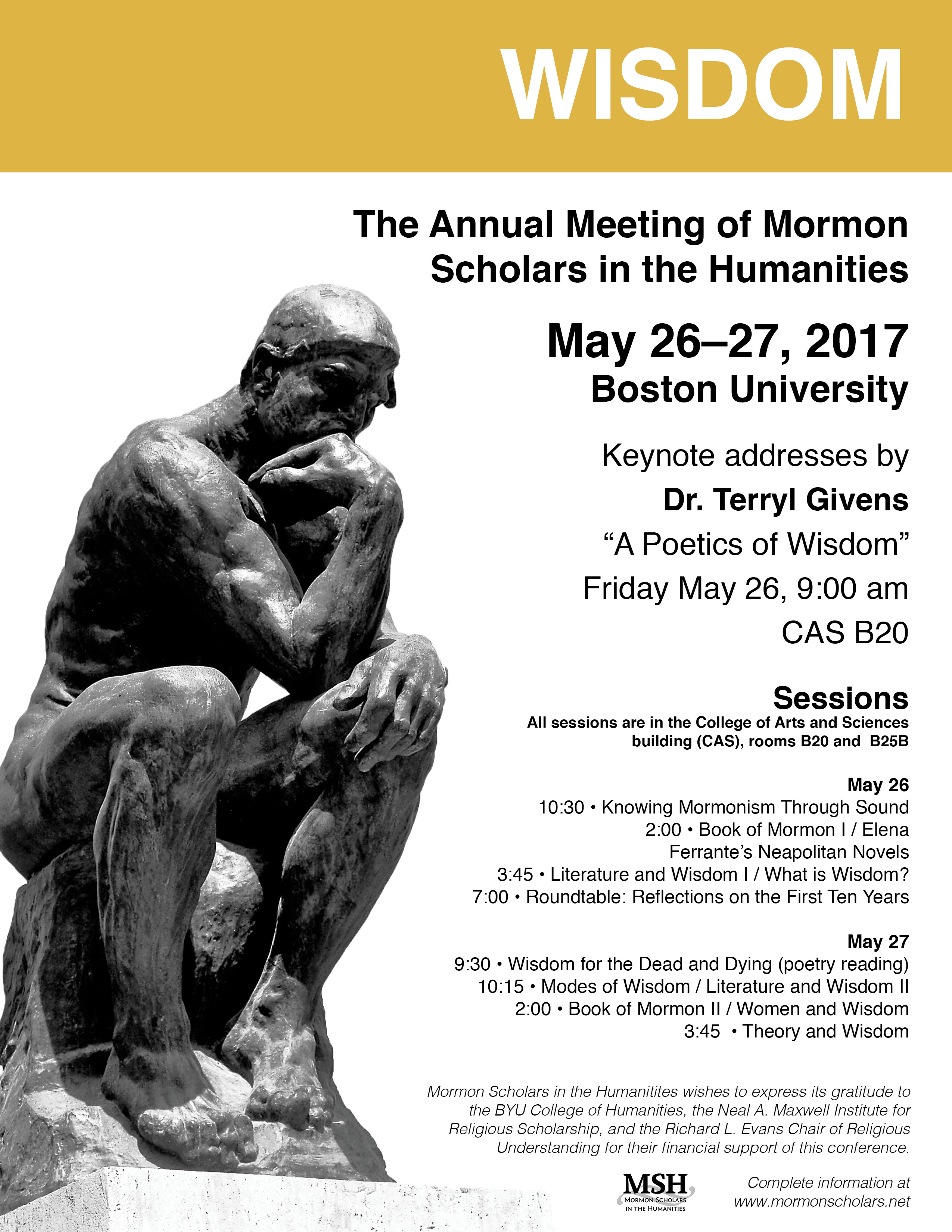
Attention Eastern Seaboard! The annual conference of the Mormon Scholars in the Humanities will take place this week, May 26-27, at Boston University. The conference is open to the public and all are welcome to attend. The keynote address will be given by Terryl Givens, Friday at 9 AM. Tickets are available for the Friday evening banquet. For more information, including the preliminary program, visit www.mormonscholars.net or contact Jenny Webb at [email protected]. I’ll be there and hope to see many of you. Read More
-
•
•
9 responses
Nephite baptism is to me quite mysterious. We know they do it but the practice seems to evolve over time a fair bit. It’s worth noting the differences between baptism in Palestine and among the Nephites. First, the baptism of John the Baptist is quite mysterious. While the common assumption is that it arises out of the form of Judaism the Essenes practiced, the details are controversial. Ritual immersions were actually quite common in Judaism but, unlike in Christianity, were not just for conversion. Indeed baptism for conversion seems a rather late development. As late as the Maccabee era circumcision… Read More
-
•
•
18 responses
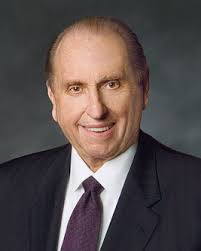
After most General Conferences, there are one or two talks that really stay with me. Some of those talks enter the language of many members, such as Elder Oaks’s framing of choices that are “good, better, best.” Is there any way to identify the most influential talks? We could begin with who influences the influencers. A simple way to measure that would be to count how often a talk is quoted by other leaders of the Church in their own conference talks. (Obviously this is just one indicator of influence. I’ll talk about limitations and alternatives at the end of… Read More
-
•
•
79 responses

Last month more than half of the Church units in Flanders were closed (Flanders is the Dutch-speaking, northern part of Belgium, with a population of 6.5 million). We shrank from 9 wards and branches to just 4. Historic cities like Bruges and Louvain lost their Mormon meeting place. It’s part of the major “contraction” of the Church in Europe, rumored to dismantle 800 of the some 1200 units. If what happened in Flanders is symptomatic for the rest, the proportion is confirmed. These original 9 units in Flanders are part of a stake, the Antwerp Belgium Stake, that also covers… Read More
-
•
•
11 responses
It’s good to ponder the end of the world from time to time. Now I’m not really a food storage guy. That has never troubled me much. Until lately. My new approach: Every time North Korea fires a missile, I buy another flat of drinking water and put it in the garage, along with one of those big 2.5 gallon water containers. If the Koreans plunk one in the ocean near Hawaii, I’ll double it. Anyone else feeling a little less secure these days? Read More
-
•
•
4 responses
The wind bloweth where it listeth, and thou hearest the sound thereof, but canst not tell whence it cometh, and whither it goeth: so is every one that is born of the Spirit. (John 3:8) I think a common self-criticism we make within the Church is the valid concern that people get so caught up in trying to be perfect that we miss the forest for the trees with respect to the atonement. People do things just because it’s on some idealized checklist. Frequently because so many checklist items are incomplete they become depressed or at least discouraged. Some even… Read More
-
•
•
56 responses
The Church announced today that it’s pulling out of scouts for all the 14 and older boys. So no more Eagle Scout projects. Overall I think that a positive thing. Trying to do both young men [i]and[/i] scouts is pretty hard. Plus my son admittedly doesn’t like scouts too much. I have to drag him to scouts every week. (He’s 12 so this doesn’t affect him yet) Read More
-
•
•
15 responses
General Conference seems to come and go so quickly now. This must have something to do with the ease of streaming it live into every home — 10 hours of Conference in one weekend is more than enough for most of us. Once upon a time getting the Conference Ensign was a treat. Not so much anymore. The Conference cycle seems to have been compressed into just a few days, like binge-watching a TV series on Netflix. That’s not really what I’m going to talk about, just something I have particularly noticed this Conference cycle. Anyone else feel this way? Read More
-
•
•
10 responses
When I first got invited to blog I had several topics I was really excited about. Then life came at me fast and most of those projects fell between the cracks. What I want to do is return to them but cut to the chase a little more swiftly. I’ve talked about knowledge quite a bit. Especially with posts like Pragmatism as Mormon Epistemology Part 1 and Part 2. Here’s my theory about a way of Mormon knowing that can deal both with the typical lay member as well as explain how an informed member can claim to know religious… Read More
-
•
•
2 responses
As I read the women’s stories in Baring Witness, I was filled with love and sorrow and hope for all of these sisters. I want to sit with them over a long lunch, laughing and crying together. These are women who have shared their vulnerabilities, who have opened their lives to me: how can I not love them? And the great strength of this collection is that Welker has gathered together Mormon-y women who have a wide variety of experiences with marriage, including even standard Mormon marriages that work according to plan with those relationships that encounter all sorts of… Read More
-
•
•
29 responses
I’ve been thinking about the different callings I have been given over the years. To that end, I present to you Rachel’s Church Callings, an incomplete list: Read More
-
•
•
29 responses
One thing I’ve noticed a lot is people creating simple divisions of people within the church. I’m sure you’ve heard many of them. Liahona Members vs. Iron Rod Members. Chapel Mormons vs. Internet Mormons. Intellectuals vs. Fundamentalists. I’m sure there’s some out there that I somehow missed. I’ll confess these have always bothered me for a lot of reasons. Read More
-
•
•
32 responses

Back home Easter was nearly as big a holiday as Christmas. I was quite shocked when first moving to Utah to attend BYU at just how marginalized Easter was here. Part of that I figured was due to it typically coming near finals when no student had a lot of free time. Part was Conference Weekend so often falling on or near Easter. Once I graduated I realized that wasn’t the cause at all. I still can’t quite understand why Easter is so minor in Utah. It’s not even a holiday! Schools could put spring break the week of Easter… Read More
-
•
•
20 responses

I was invited to speak at a recent Relief Society conference on the topic of nurturing relationships through faith and testimony transitions. I post my remarks here by request, and because I haven’t blogged in forever. About ten years ago my sister Gabrielle looked like a typical young Mormon mom. She had a three little boys, a knack for home renovation and photography, and had recently returned to running after her last baby. One morning on her run, she tripped and fell. Clear sidewalk, no debris: strange, but she didn’t think much about it. Then it happened again a few… Read More
